In education, it is critical to keep an organized approach to deadlines and assignments. It’s usual for teachers and students to feel overwhelmed by all of the responsibilities and deadlines they have to meet.
Whether you’re a student seeking writing assistance or a teacher managing administrative tasks, AI tools for education can significantly streamline your educational experience.
Benefits of Using AI in Education
Artificial Intelligence (AI) tools are increasingly transforming the education sector, offering significant benefits for both teachers and students.
Here’s an overview of how AI is enhancing educational experiences:
Benefits for Students
- Customized Learning Experience: AI can analyze student performance data and personalize content and assessments accordingly.
- Enhanced Engagement: The use of contemporary technology in education, such as gamification and virtual reality (VR), increases interactivity and engagement. This allows learners to explore complex concepts through immersive experiences.
- Improved Writing Skills: AI-powered writing assistants like Grammarly can provide real-time feedback on grammar, spelling, and style, helping students refine their writing skills.
- AI Tutors: Virtual tutors can provide instant help with homework and study questions, offering explanations and guidance outside school hours.
- Learning Assistants: AI chatbots can assist students with course-related queries, helping them navigate resources and manage their study schedules.
- Language Translation: AI can translate educational content into multiple languages, making learning more accessible for non-native speakers.
Benefits for Teachers
- Automated Administrative Tasks: AI is capable of automating a variety of administrative duties, including scheduling, attendance monitoring, and grading.
- Data-Driven Insights: The tool provides teachers with detailed analytics on students in regard to their performance and helps them identify which teaching strategies are working and where adjustments are needed.
- Access to Quality Education: AI enables remote learning, supports students with special needs, and offers educational resources to underserved communities.
- Adaptive Learning Systems: AI tools can analyze student’s learning styles, strengths, and weaknesses to create personalized learning paths ensuring that each student receives the right level of challenge and support.
- Customized Content: Teachers can use AI to generate custom content, including quizzes, assignments, and study materials tailored to individual student needs.
- Automated Grading: AI can handle routine grading tasks, especially for multiple-choice and fill-in-the-blank tests, freeing up teachers’ time for more complex assessments.
- Attendance Tracking: AI-powered systems can automatically track attendance through facial recognition or other means, reducing manual record-keeping.
Limitations and Concerns on Educational AI Tools
While AI tools for education provide unmatched benefits, they also come with limitations and concerns.
- Lack of Human and Emotional Support: AI cannot replace the role of teachers, which includes providing emotional support to students.
- Privacy Concerns: As educational institutions continue to be more data-driven, privacy becomes a vital concern. AI tools gather and examine student data, which raises questions about data security, ownership, and consent.
- Factuality and Plagiarism: While AI-powered technologies can help with content production, they also raise concerns about plagiarism.
- Effect on Teacher’s Roles: While AI can automate administrative work, it cannot replace the teachers’ all-encompassing roles. Teachers must adjust to new roles that blend AI technology with human interaction.
Statistics and Future Trends About AI Tools for Education
There are reports and surveys that shed light on current trends and future predictions.
Current AI Education Market
The adoption of AI in education is rapidly increasing. A report by Analytics Vidhya projects that the global AI in education market will reach $3.4 billion by 2024, indicating a growing acceptance and implementation of AI tools in classrooms.
Future Trends in AI Education
While current AI tutors are somewhat limited in scope, advancements in Artificial General Intelligence (AGI) could lead to the development of more comprehensive and adaptable
AI-powered learning companions.
Imagine virtual reality classrooms or AI-driven simulations that create realistic and interactive learning experiences. AI has the potential to analyze student performance data in real-time, providing personalized feedback and guidance to both teachers and students throughout the learning process.
Challenges and Considerations
A significant challenge is ensuring that AI tools are accessible to all students, regardless of socioeconomic status. Unequal access to technology can exacerbate existing educational disparities. It’s crucial to implement AI solutions in a way that promotes equity and inclusivity.
Effective integration of AI tools requires that teachers receive proper training. Educators need to be equipped with the skills to use AI technologies effectively and to integrate them into their teaching practices.
Ongoing professional development will be essential to help teachers stay updated with the latest AI advancements.
While AI can significantly enhance educational processes, it is important not to over-rely on automation. The human element in education—fostering critical thinking, creativity, and social-emotional skills—remains irreplaceable.
AI should be used to complement and enhance traditional teaching methods, rather than replace them.
Best AI Tools for Education
In this post, we’ll explore some of the best AI tools for education that students and teachers can leverage to enhance their educational experience.
1. QuillBot
QuillBot is an AI-powered tool designed to enhance content production. It intelligently rephrases text without distorting its original meaning. You can input your paragraph or sentence, and it will provide a rephrased version while retaining the core meaning.
It also offers an AI Detector, which analyzes your writing and provides a detailed report on any sections that may be AI-generated. This feature helps maintain authenticity and clarity in your content.
Millions of professionals, writers, and students around the world rely on QuillBot. It’s a go-to tool for those who want to write better and faster because of its time-saving techniques and availability in both free and Premium plans.
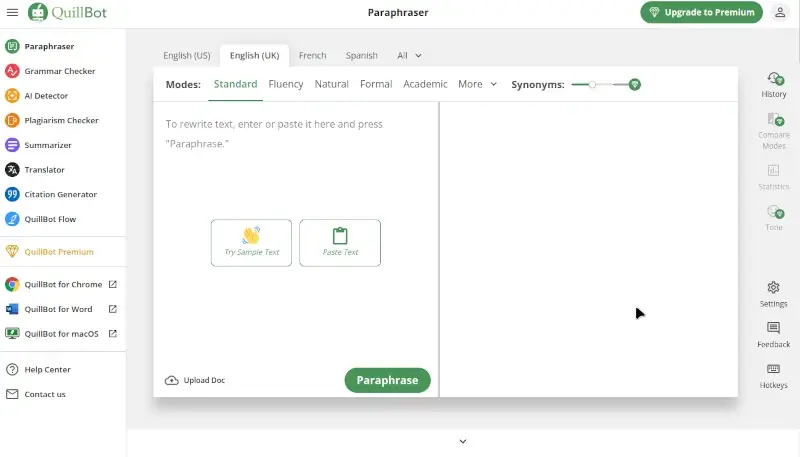
2. Owlift
Owlift is an all-one AI-powered tool designed to empower educators and improve the teaching and learning experience.
Owlift offers project ideas, guidelines, and cooperation techniques when assigning group work. Besides that, it assists in designing challenging problem-solving scenarios for students.
Teachers can use it to create tests with different levels of difficulty. It guarantees uniform assessment procedures while saving time. Owlift encourages creativity by offering writing exercises. This allows students to express themselves and experiment with various genres.
In addition, Owlift provides educators with valuable teaching resources. Whether it’s lesson plans, teaching techniques, or classroom activities, Owlift offers a wealth of educational resources.
Qwlift packs the following features out of the box:
- Debate Topic Generator: This feature helps you generate thought-provoking debate topics for classroom discussions.
- Discussion Question Generator: This feature creates stimulating questions for class discussions.
- Email Response Generator: While writing customized email responses might take a lot of time for educators, Owlift makes this process easier by making thoughtful email template suggestions.
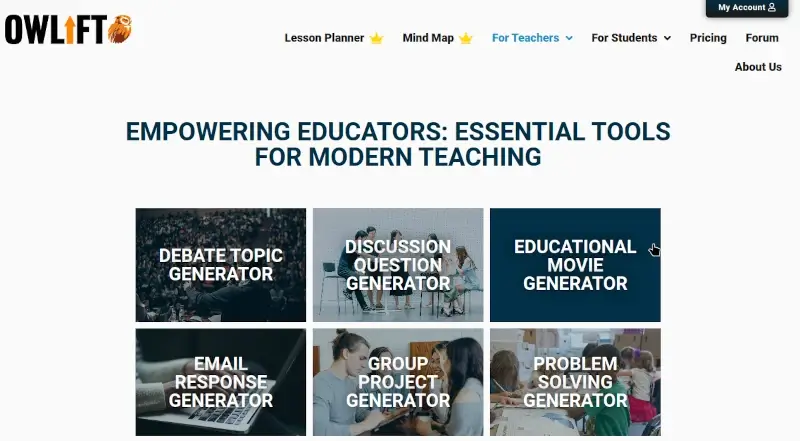
3. Grammarly
Grammarly is another fantastic AI-powered writing assistant designed to assist with your writing process. Whether you’re crafting emails, collaborating on documents, or writing content for blogs, Grammarly offers real-time suggestions to improve your correctness, clarity, and engagement.
Grammarly checks your writing for mistakes in punctuation, grammar, and spelling. It guarantees the accuracy and professionalism of your writing. Besides that, Grammarly can identify instances of plagiarism in your writing, assisting you in upholding your integrity and uniqueness.
In addition, you can find the perfect words, create ideas, and enhance your tone with Grammarly’s generative AI. Grammarly also seamlessly integrates with all the apps and platforms you want to use.
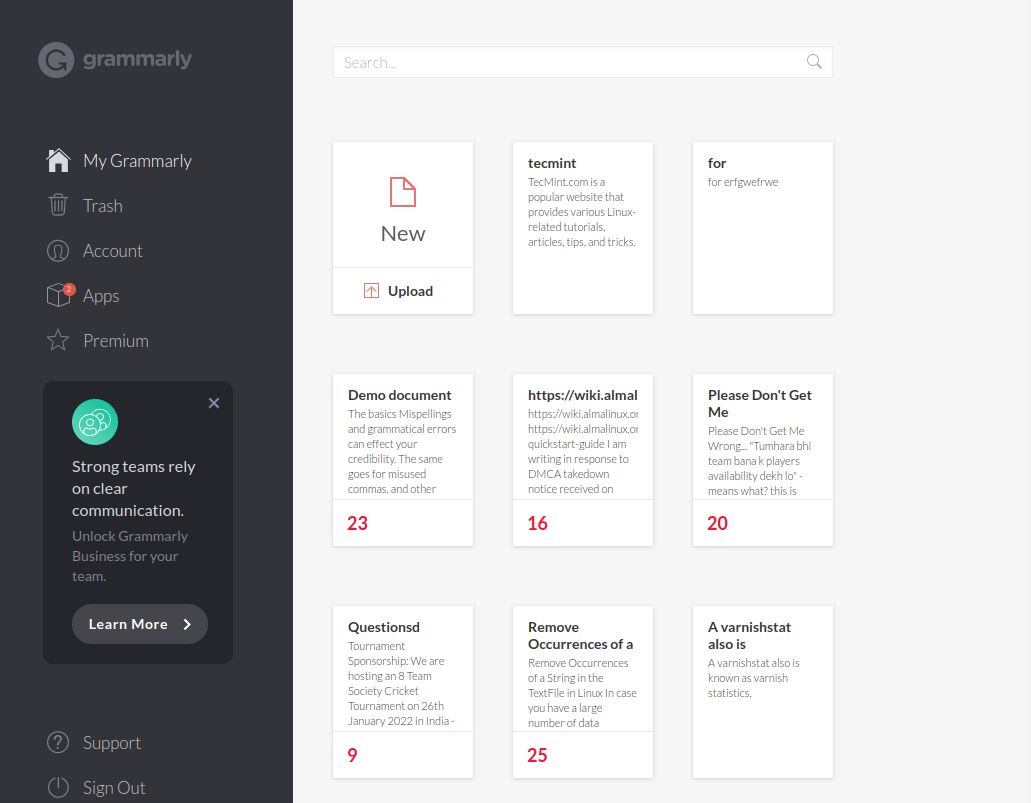
4. Gradescope
If you’re an educator searching for an effective grading solution, you can consider exploring Gradescope. It is trusted by universities worldwide.
Teachers can evaluate assignments in a variety of formats with Gradescope, including code assignments, digital submissions, and paper-based assignments. It uses adaptable rubrics to provide students with thorough feedback while preserving uniformity.
With Gradescope, you can learn more about your students’ performances. It provides thorough analytics that let you know how well your students are performing and where they need to improve.
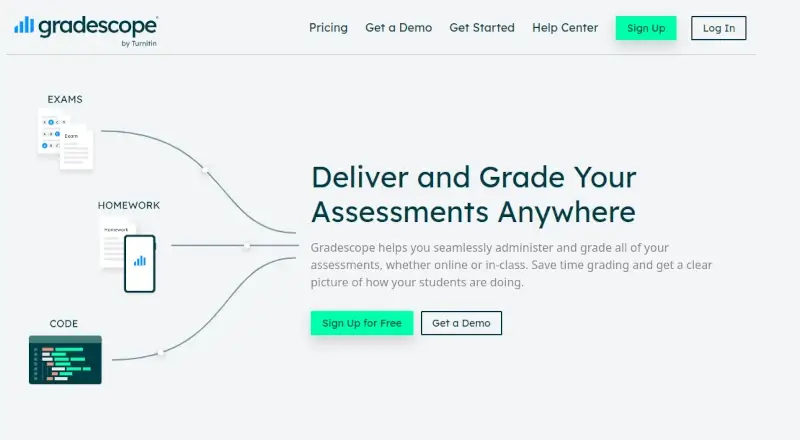
5. Fireflies.ai
Fireflies.ai is an AI-powered meeting assistant trusted by more than 300,000 organizations worldwide. It is a valuable tool for anyone searching to enhance their meeting efficiency and collaboration.
Firefliesa.ai integrates seamlessly with video conferencing applications such as Zoom and Google Meet. It records meetings, joins calls, and produces shareable recaps.
In just five minutes, Fireflies.ai allows you to review a one-hour meeting. You can view tasks, queries, action items, and other important metrics with just one click. You can also filter and listen to key topics discussed during your meeting.
Fireflies.ai streamlines the task of taking notes during classroom sessions or virtual teaching. Instead of writing down everything, teachers can concentrate on delivering stimulating lessons while Fireflies records and transcribes the audio.
In addition, teachers can also annotate certain segments of their recordings to highlight key points during their lectures. It’s simple to share lecture transcripts and recordings with others.
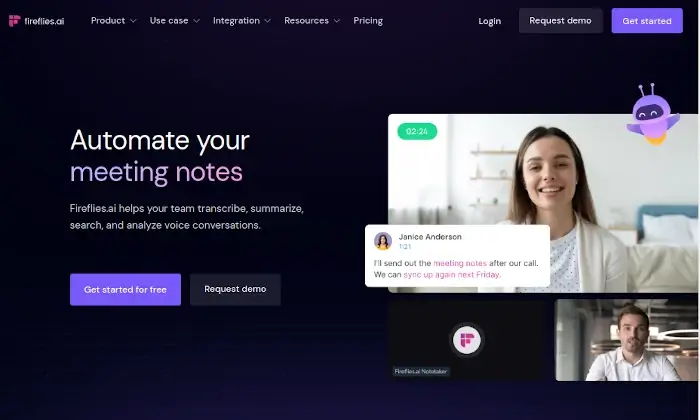
6. Otter.ai
Otter.ai is an AI-powered meeting assistant that enhances collaboration and empowers various professionals across different domains. Whether you’re a salesperson or an educator, Otter.ai streamlines your meetings and communication
.
With OtterPilot, you can receive automated meeting notes, summaries, and action items. You can also use Otter AI Chat’s power to get answers and create content for all of your meetings, including emails and status updates.
In addition, Otter creates a concise 30-second summary of a 1-hour meeting, ensuring everyone is up to date.
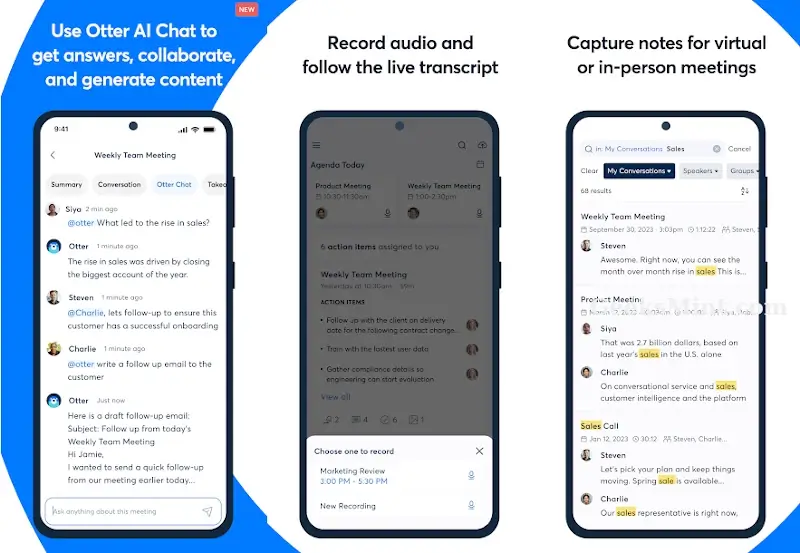
7. Google Scholar
Google Scholar is a valuable resource for academic research and scholarly literature. It offers a straightforward way to search across various disciplines and sources, including articles, books, court opinions, and abstracts.
You can look up authors, publications, citations, and related works using Google Scholar. Scholarly content can be found through a single, central search location. Details on individual writers are available, such as their publications, h-index, and citation metrics.

8. Copy.ai
Copy.ai is a powerful AI-powered writing tool that can benefit both students and teachers. You can use it to create well-structured essays, research papers, and reports. By providing prompts related to your related topics, you can instantly generate high-quality content.
With Copy.ai, you can summarize lengthy textbooks or academic articles into concise study notes. You can input key points or concepts, and the tool will automatically generate a summary. Whether it’s poetry, essays, or reports, Copy.ai can help you as a student in your creative writing endeavors.
On the other hand, teachers can leverage this tool to create engaging lesson plans, handouts, presentations, and draft announcements for class. In addition, teachers can get help from Copy.ai in giving students tailored assignment feedback.
It can suggest constructive comments on common issues. Teachers can also create quiz questions by inputting relevant data, and Copy.ai will generate multiple-choice questions to choose from.
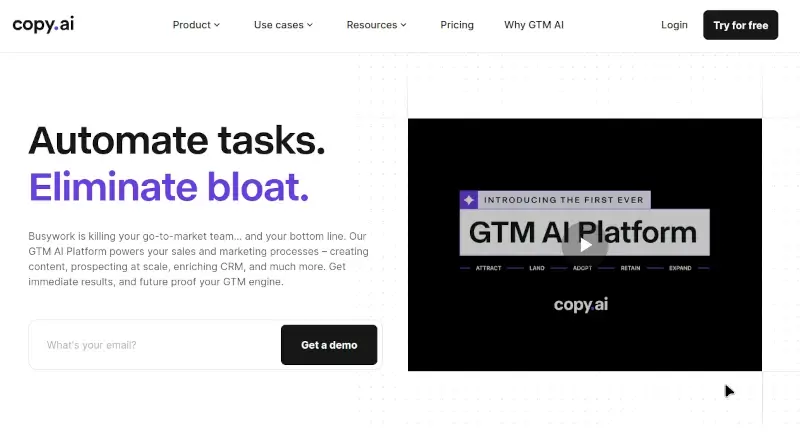
9. Gemini
Gemini ( Formerly known as Bard) is an AI-powered chatbot developed by Google. This tool aims to supercharge creativity, productivity, and learning through conversational interactions.
Just Like ChatGPT, Gemini offers a conversational interface, allowing users to chat, write, plan, learn, and more. It acts as an AI-powered assistant for multiple tasks.
Whether it’s essays, creative writing, or professional documents, Gemini can help you generate unmatched content. Besides that, Gemini uses Google’s AI capabilities to enhance user interactions. It’s a valuable resource for anyone seeking assistance with their ideas and tasks.
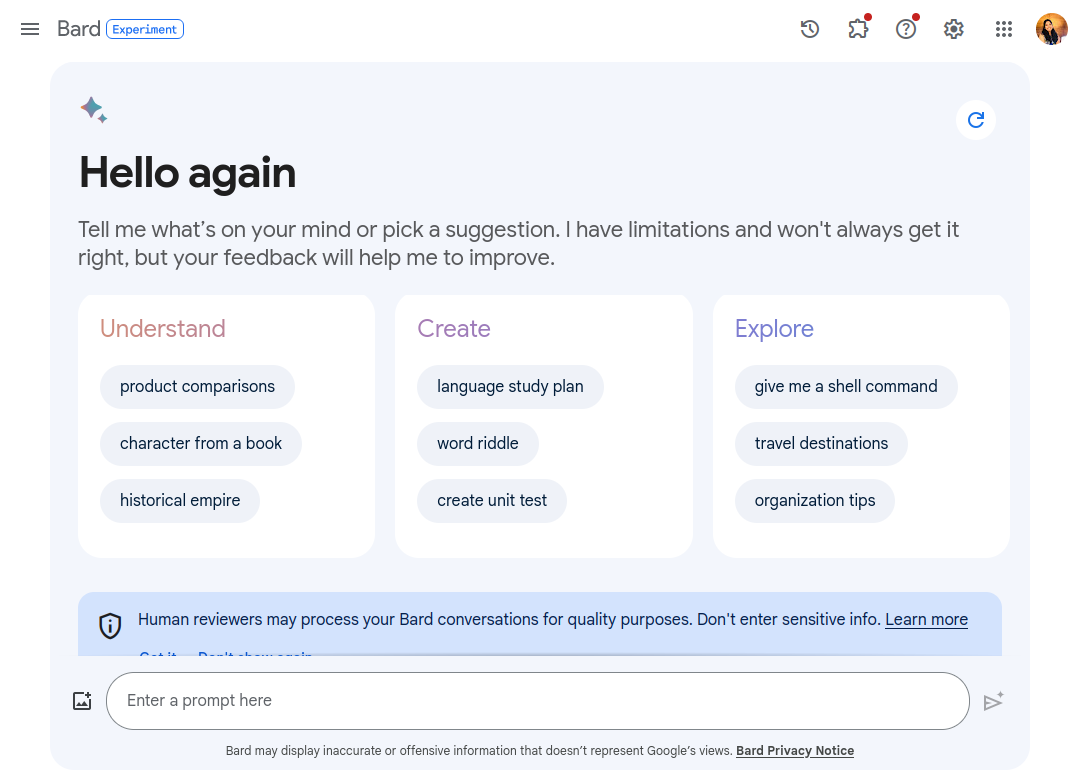
10. Course Hero
Course Hero is a comprehensive platform that provides students with tutoring, homework assistance, and study materials.
It provides AI-powered answers, explanations, and recommendations based on your documents. It’s a convenient way to enhance your understanding of various subjects.
Course Hero allows you to discover study materials shared by other students. If you have relevant questions related to your coursework, you can ask them on Course Hero. Verified experts provide well-explained answers. Whether it’s intricate math problems or research papers, you can get assistance 24/7.
In addition, if you’re knowledgeable in a subject, you can apply to be a Course Hero tutor. By helping other students, you can earn money and join a global community of tutors.
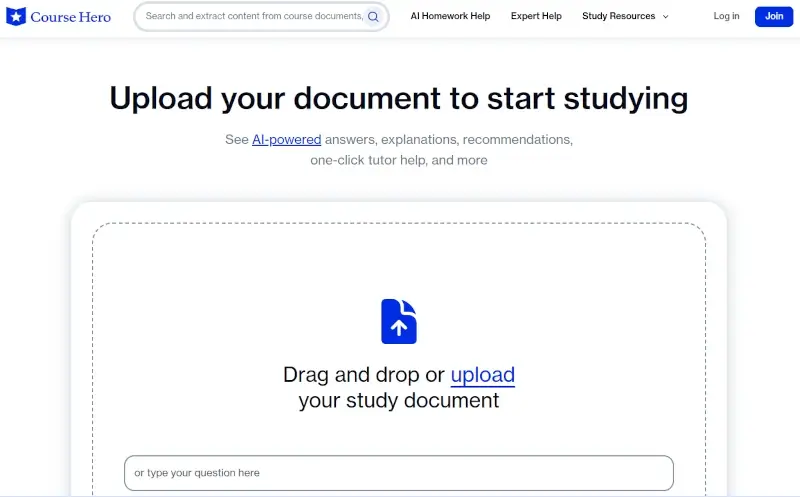
11. Knowji
Knowji is a research-based audiovisual vocabulary tool that caters to all learning styles. It blends scientifically proven methodologies with entertaining content to create an engaging and effective learning platform.
Cartoon graphics, audio pronunciations, clear definitions, sample sentences, and more are all available on Knowji. This captivating method makes vocabulary study memorable and fun.
Knowji guarantees long-term memory retention with its robust spaced repetition algorithm. Besides that, it offers four learning modes, each enhancing memory strength as you advance.
Whether you’re a student or a professional, Knowji can help you learn quickly and master everything you’ve learned.
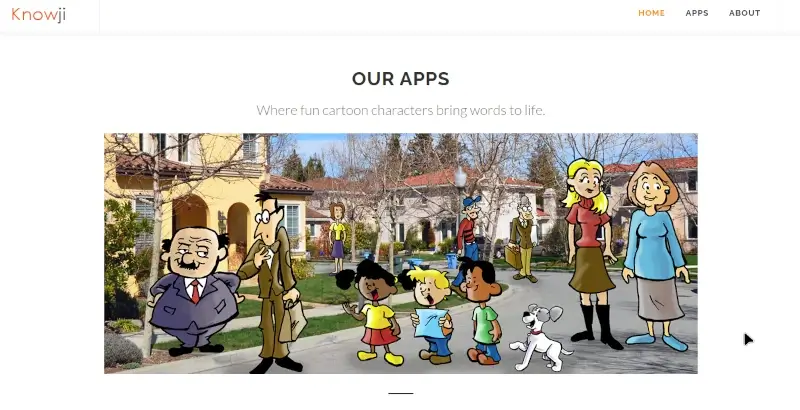
12. Nearpod
Nearpod is a fantastic platform that empowers educators to produce engaging and interactive lessons, videos, and activities.
With Nearpod, you can transform your lessons into interactive experiences, add formative assessments, and use dynamic media to gather data on student understanding.
In addition, thousands of customizable, standards-aligned, ready-to-teach lessons from reliable brands are at your disposal. You can upload your own preferred videos to the Nearpod platform or choose from a library of videos that follow standards.
Teachers love Nearpod because of its formative evaluation tools, real-time insights, and teaching differentiation capabilities. It’s a free and powerful platform that aids educators in making teaching easier and more convenient.
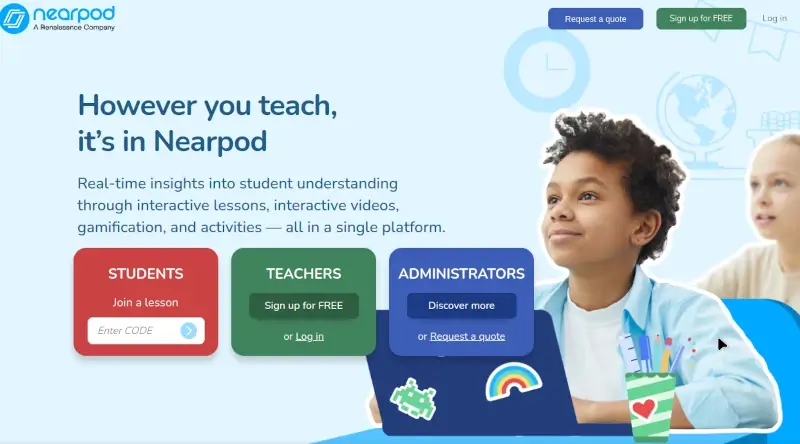
13. Chat-GPT
ChatGPT is a renowned AI-powered language model developed by OpenAI. This tool can write text that sounds human, automate tasks, participate in conversations, and provide insights.
ChatGPT was first developed using a family of Large Language Models (LLMs), such as GPT-3. However, it has now switched to GPT-4 models, which are trained on vast amounts of data and can understand and generate responses that resemble natural language.
In addition, ChatGPT is optimized for dialogue. It can respond to follow-up inquiries, acknowledge errors, and decline improper requests. This makes it well-suited for interactive conversations.
As an AI chatbot, it can engage in back-and-forth conversations, making it effective for a variety of tasks like answering questions, providing recommendations, and assisting with various queries.
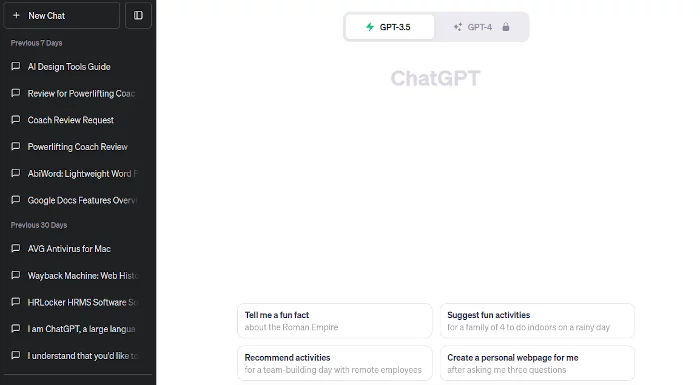
14. Tutor.ai
Tutor.ai offers customized learning solutions tailored to individual learners. Whether you’re a professional trying to upskill, a student trying to grasp a difficult subject, or just someone who is keen to learn, this tool offers personalized classes to help you achieve your learning goals.
With Tutor AI, you can analyze each learner’s situation, strengths, weaknesses, and preferences. Tutor AI also adjusts to your speed and learning preferences to provide the best possible engagement and understanding, from interactive lessons to real-time feedback.
All you have to do is type in a subject, and Tutor AI will provide you with learning modules to review. There are several lessons in each module, and you can question the AI for clarification or even take topic quizzes.
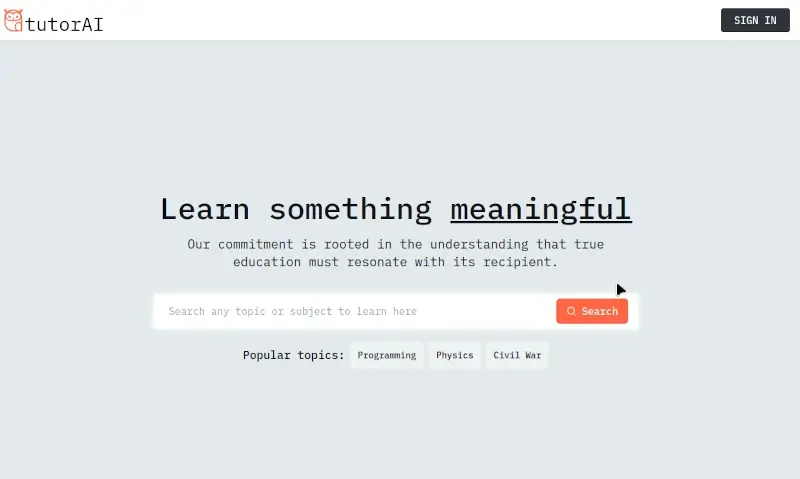
15. Copyscape
Copyscape is a valuable resource for detecting plagiarism and ensuring the originality of your content.
Copyscape offers a free plagiarism checker that helps you identify instances of duplicate content on the web. You can input the URL of your original content, and it will search for copies of that content online. If any matches are found, it indicates instances of potential plagiarism.
In addition to the free service, Copyscape also offers premium features for more advanced features.
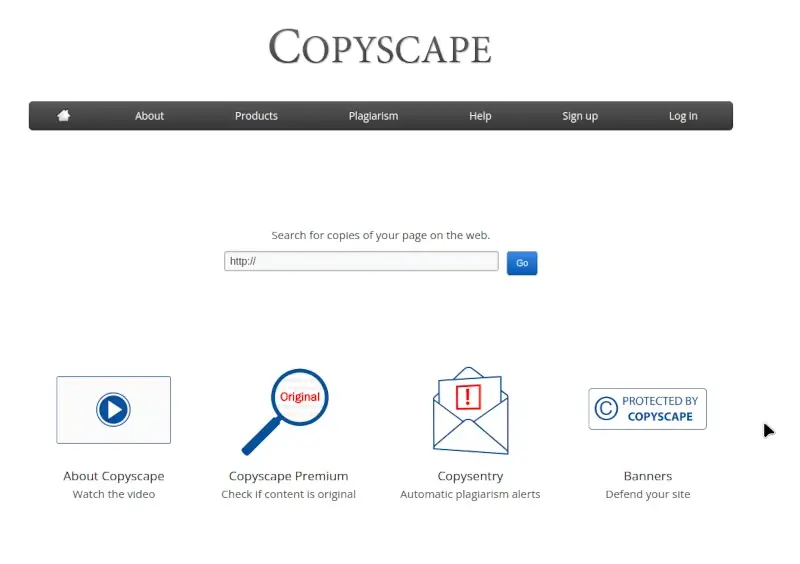
What Are The Best AI Tools for Teachers?
As an educator, there are several AI tools that can enhance your teaching practice and streamline various tasks. You can consider exploring popular options such as ChatGPT, Gradescope, Nearpod, Copy.ai, and more.
What Are The Best AI Tools for Students?
As a student, you can also find several AI tools that can enhance your learning experience, boost productivity, and streamline various tasks.
You can explore these tools (Copyscape, QuillBot, Owlift, Grammarly, Otter.ai, and Google Scholar) to find the ones that align with your specific needs and learning style.
Conclusion
In this post, we’ve highlighted some of the best AI tools for education. Whether you’re a student or a teacher, these AI tools will support your continued productivity and improved learning.
Which tools are your favorites? As a student, do you currently use any AI tools? Let me know in the comments section below.
